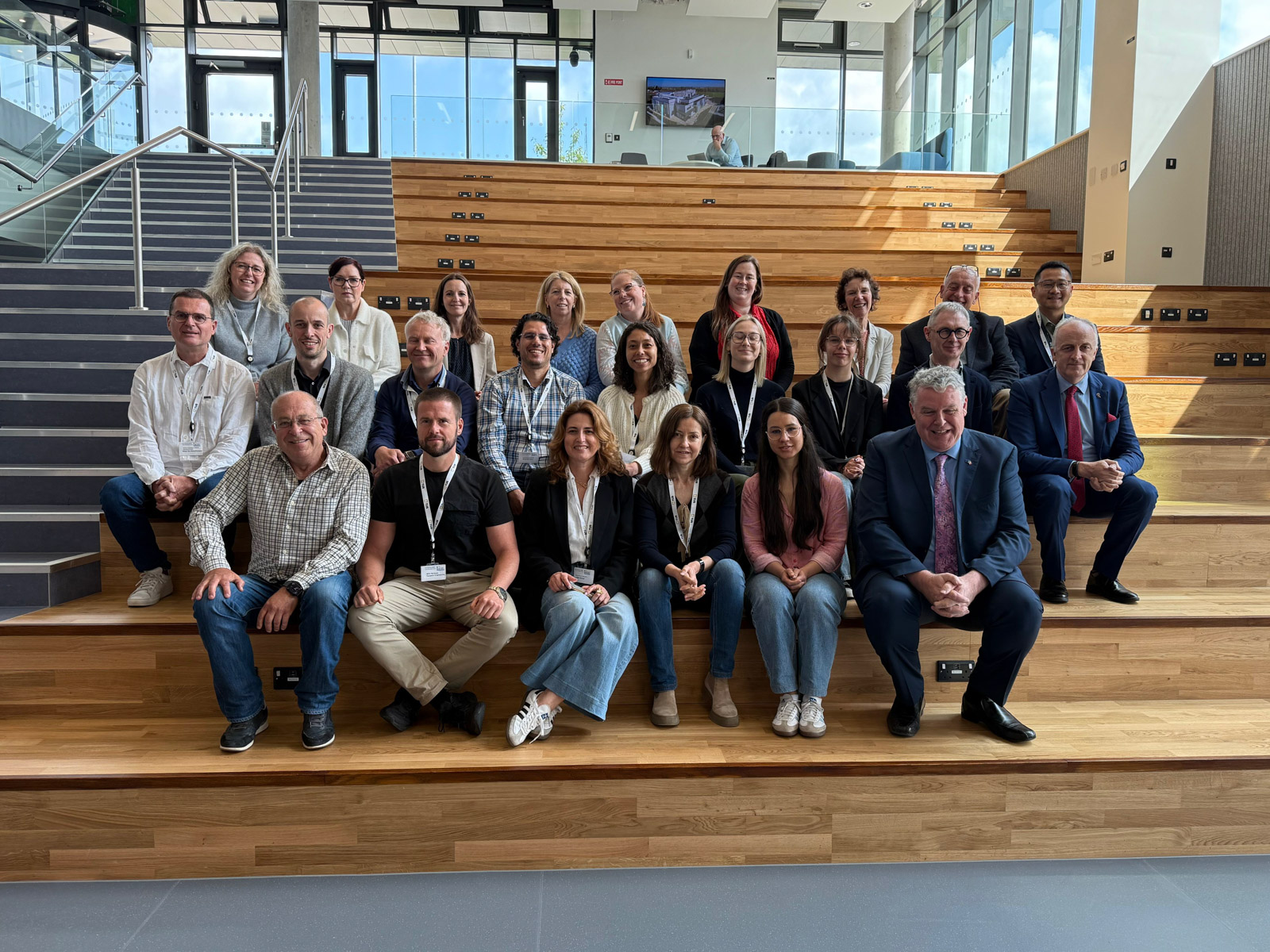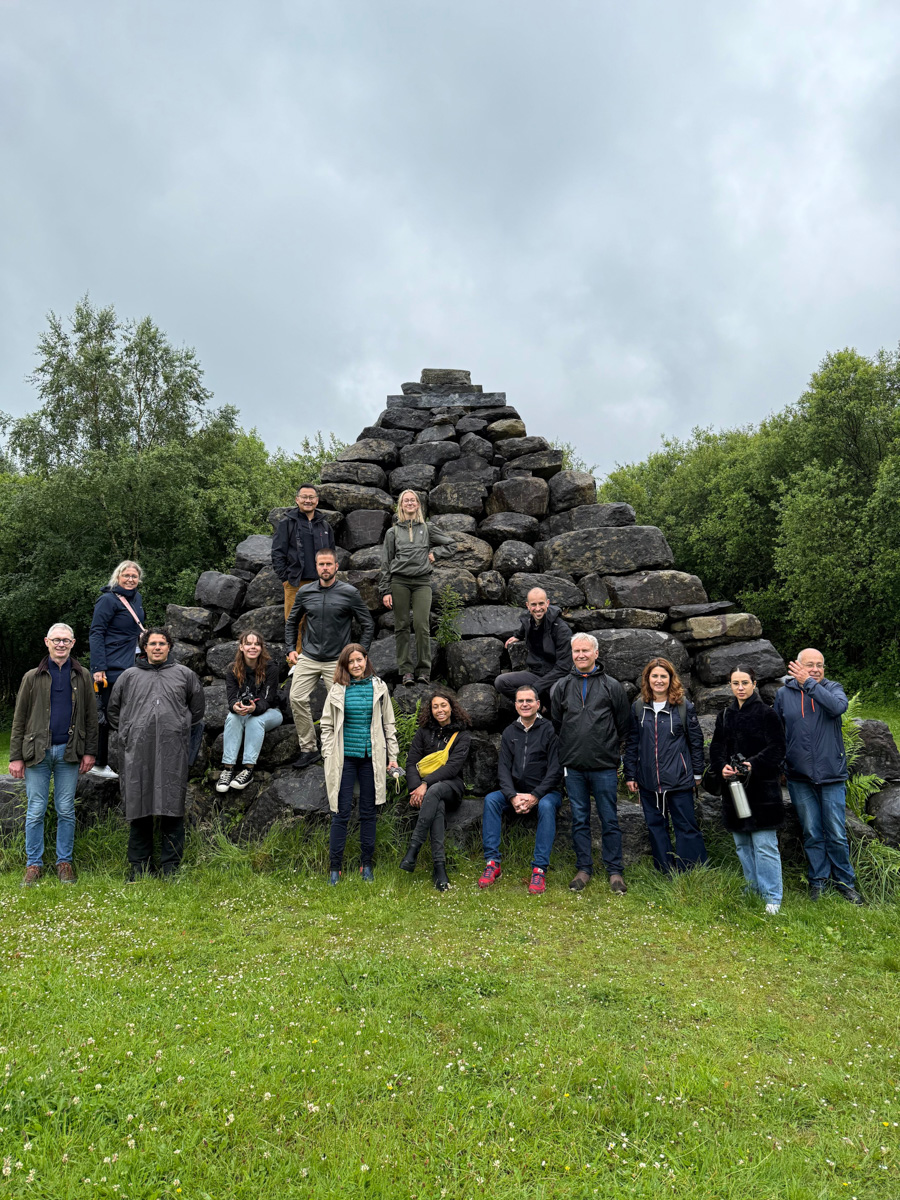NEWS
RUN-EU EPA Mission on Smart Sustainable Tourism at TUS
7 November 2025
The RUN-EU EPA Mission 2025, hosted by the Technological University of the Shannon (TUS) in Athlone, from 10 to 13 June 2025, focused on “Smart Sustainable Tourism.”
The four-day collaborative event aimed to develop innovative short learning opportunities (SLOs) through shared experiences, regional insights, and interdisciplinary academic cooperation.
This initiative brought together academics, regional stakeholders, and policy influencers to address the evolving challenges and future competencies needed in regional tourism development.
The gathering fostered a co-creative approach to learning design and policy alignment while reinforcing the value of place-based knowledge in developing sustainable and resilient tourism strategies.
Special thanks to all session facilitators, participating institutions and regional hosts.
- Vorarlberg University of Applied Sciences (Austria)
- University of Burgos (Spain)
- Polytechnic University of Cávado and Ave (Portugal)
- Polytechnic University of Leiria (Portugal)
- Howest University of Applied Sciences (Belgium)
- Häme University of Applied Sciences (Finland)
- Technical University of Liberec (Czechia)
Gratitude also extended to MEP Ciaran Mullooly for his involvement in closing the event.

Key Themes and Discussions
Tourism Challenges in the Regions
To open the event participants identified a variety of region-specific and shared tourism challenges:
- Overtourism vs. undervisited rural regions
- Seasonality and lack of year-round employment
- Digitalisation and accessibility of tourism services
- Climate change and environmental degradation
- Heritage preservation and cultural sustainability
Shared concerns included the need to modernise infrastructure, develop green tourism practices, and improve stakeholder collaboration.
Most Pressing Regional Challenge
While all regions face sustainability-related issues, climate vulnerability and economic dependency on tourism were highlighted as particularly acute in some areas (e.g., coastal and rural regions).
Future Readiness
To remain vital and relevant, regions must:
- Cultivate digital and green skills among tourism professionals
- Embed sustainability into tourism planning and education
- Foster stronger university–industry–community linkages
- Encourage innovation through interdisciplinary collaboration

Programme Highlights
Day 1: Welcome and Regional Challenge Exploration
- Opening remarks by TUS leadership and RUN-EU representatives
- Icebreaker networking activity (“speed dating” format)
- Introductions to regional stakeholders, including representatives from Just Transition from Laois and Offaly, Offaly Local Development Company, Regional Skills Forum and the Hodson Bay Group.
- We then proceeded to a stakeholder roundtable discussion identifying core challenges
- Campus tour and EDU Hub session on short learning opportunity (SLO) development
Day 2: Education and Skills Development
- Group discussions focused on higher education institutions’ roles in addressing regional challenges
- Identification of skills and competences needed by learners
- ABC Workshop on blended course design, facilitating creative curriculum development, facilitated by TUS FAPSA
Day 3: Field Trip – Experiential Learning
Participants visited:
- Clonmacnoise Monastic Site – Understanding cultural heritage’s role in tourism
- Lough Boora Discovery Park – Model of sustainable and ecological tourism
This field trip provided practical insights into heritage conservation, ecotourism, and rural revitalisation.
Day 4: Presentations and Way Forward
- Final team presentations (“Mission Pitches”) showcasing proposed SLOs and strategies
- Feedback from regional stakeholders and peer institutions
- Planning for next steps and evaluation session
- Closing remarks, with MEP Ciaran Mullooly offering concluding perspectives